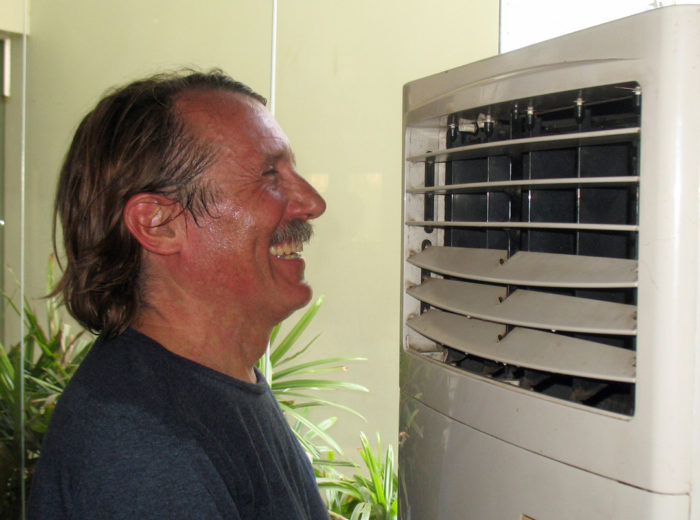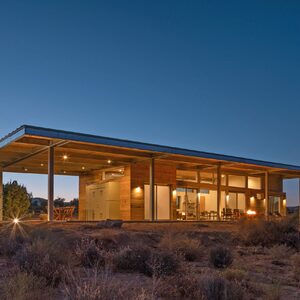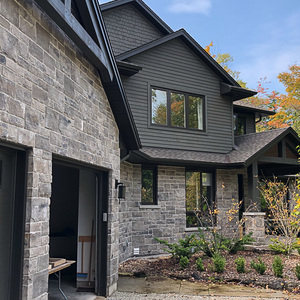
Image Credit: Karyn Patno
During the summer, your house is too hot. What’s the solution?
The simplest thing to do, of course, is to get a bigger air conditioner. That crude solution certainly works: if you blast enough cold air into a building — even a leaky, poorly insulated building — you can lower the indoor air temperature. (Of course, adopting this approach is no guarantee of success, since central air conditioning systems are often poorly designed and haphazardly installed.)
If you care about efficiency (or your pocketbook), and your house is too hot, you’ll probably prefer a more intelligent and nuanced approach than “I need a bigger air conditioner.”
How do homes get hot?
So before you install a powerful new air conditioner, you should first investigate whether you can address the factors that are making your house hot in the first place.
Weekly Newsletter
Get building science and energy efficiency advice, plus special offers, in your inbox.
There are five basic ways that homes get hot:

This article is only available to GBA Prime Members
Sign up for a free trial and get instant access to this article as well as GBA’s complete library of premium articles and construction details.
Start Free TrialAlready a member? Log in
















7 Comments
Cooling
Martin - In an even moderately insulated and sealed home, closing the windows and doors mid morning, and opening them up in the early evening, when the temp. inside exceeds the temp. outside, is an easy and very effective strategy. Of course, I live in Maine where we can, usually, depend on lower evening temps., in the lo 70's or 60's. Thanks for the article.
Basements
I'm lucky to live in a climate where after even the hottest days there is a cool evening breeze, but I remember growing up in Montreal that we used to retreat to the basement when the heat became unbearable. Is there a simple effective way to move this cool air to the rest of the house, or is that even something worth considering?
Response to Kevin and Malcolm
Kevin and Malcolm,
Like both of you, I live in a climate where air conditioning is unnecessary. For most of the summer, our windows stay open. On hot days, it is indeed sometimes helpful to close windows from 10:00 a.m. to 7:00 p.m.
The tips in this article are for homes with air conditioning, not homes without air conditioning.
In a house without air conditioning, if the upper floors are at 80°F, and the basement is at 65°F, then it can certainly be refreshing to hang out in the basement. I've never heard of anyone attempting to use a fan and a duct to circulate air from a cool basement to a hot living room. It might work; however, it's hard to cool an 80°F room with 65°F air.
Basement cooling
In humid climates, trying to cool the upstairs with coolth from the basement means sending hot humid air from upstairs, or from outside, into the basement. The result is increased humidity in the basement. It's sort of like trying to use the basement as an earth tube.
basement cooling = mold
The classic basement in the NE USA seems to smell moldy... using it as an earth tube will usually make things far worse. And I've seen puddles form on the floor in walk-outs where the owner allowed a breeze to flow through a walk-out in an attempt to fix the smell...
basement cooling: check radon
If you are moving basement air to cool the rest of the house, it's also a good idea to check for radon levels before implementing such technique. It's the basement where radon is generally the highest.
Basement cooling
I tend to have a very cool basement, in part due to the installation of a heat-pump water heater. The unit literally exhausts air conditioning. I've thought of pumping that air into the main floor, but Dennis makes a good point: I need to check for radon first. I live in an area that often has radon problems, so I don't want to exacerbate the issue.
Thanks for all the good suggestions!
Log in or become a member to post a comment.
Sign up Log in